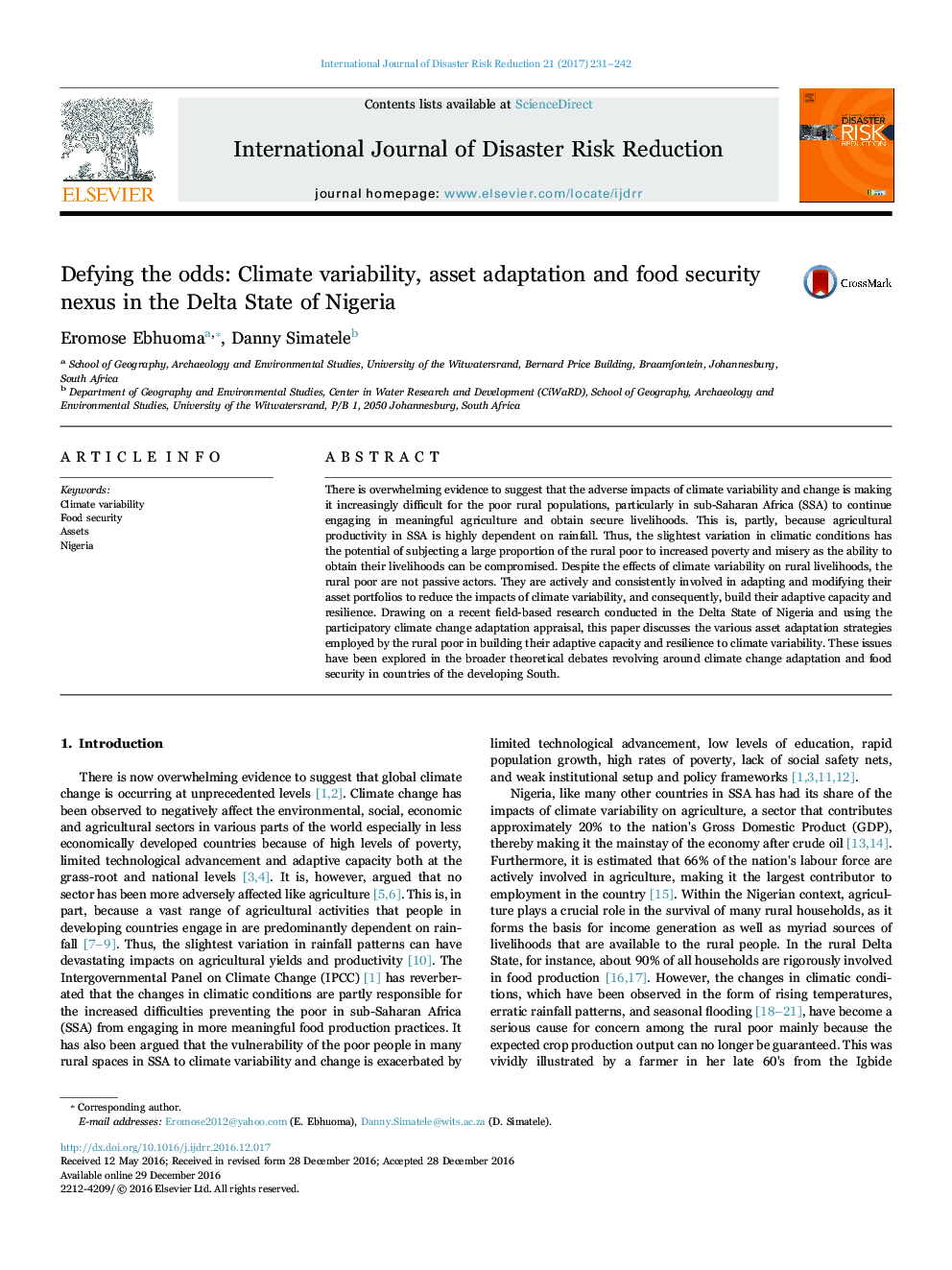| Article ID | Journal | Published Year | Pages | File Type |
|---|---|---|---|---|
| 5116180 | International Journal of Disaster Risk Reduction | 2017 | 12 Pages |
â¢Illuminates the impacts of climate variability on food production in the Delta State.â¢Identifies the ways in which the poor employ their asset portfolios to grow food.â¢Highlights the ways the poor protect key assets before and during a disaster.
There is overwhelming evidence to suggest that the adverse impacts of climate variability and change is making it increasingly difficult for the poor rural populations, particularly in sub-Saharan Africa (SSA) to continue engaging in meaningful agriculture and obtain secure livelihoods. This is, partly, because agricultural productivity in SSA is highly dependent on rainfall. Thus, the slightest variation in climatic conditions has the potential of subjecting a large proportion of the rural poor to increased poverty and misery as the ability to obtain their livelihoods can be compromised. Despite the effects of climate variability on rural livelihoods, the rural poor are not passive actors. They are actively and consistently involved in adapting and modifying their asset portfolios to reduce the impacts of climate variability, and consequently, build their adaptive capacity and resilience. Drawing on a recent field-based research conducted in the Delta State of Nigeria and using the participatory climate change adaptation appraisal, this paper discusses the various asset adaptation strategies employed by the rural poor in building their adaptive capacity and resilience to climate variability. These issues have been explored in the broader theoretical debates revolving around climate change adaptation and food security in countries of the developing South.
